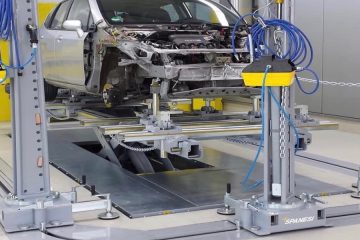Top Warning Signs Your Catalytic Converter Is Clogged

One of the earliest and most noticeable symptoms of a clogged catalytic converter is a significant drop in engine performance. If your vehicle starts to hesitate during acceleration, sputter while driving, or loses power when going uphill, your converter may be restricting exhaust flow. Since a clogged catalytic converter creates excessive backpressure, it prevents exhaust gases from exiting the engine efficiently. This backpressure chokes the engine, leading to sluggish response, poor throttle performance, and an overall lack of power.
Decreased Fuel Efficiency
A sudden and unexplained dip in fuel economy can be a significant indicator of catalytic converter trouble. When a catalytic converter becomes obstructed, it throws off the engine’s delicate air-to-fuel balance by interfering with the oxygen sensors’ readings. This disruption often leads to the engine running in a “rich” state, meaning it consumes more fuel than required for optimal performance. Consequently, you might notice yourself visiting the gas station more frequently, even if your driving patterns remain consistent. If you’ve investigated and eliminated other common causes of diminished gas mileage, such as tire pressure or routine maintenance needs, the catalytic converter could very well be the source of the problem. Choosing the Auto Repair in Wyoming, MN based service would be smart here.
Check Engine Light Illuminated
A clogged catalytic converter often triggers your vehicle’s check engine light. This typically happens because the oxygen sensors, located before and after the catalytic converter, detect irregularities in the exhaust flow or gas composition. The most common trouble code associated with catalytic converter issues is P0420, which indicates the converter is not operating at peak efficiency. While the check engine light alone doesn’t confirm a clog, it’s a strong indicator when combined with other symptoms.
Rattling Noises and Rotten Egg Smell
Unusual sounds or smells coming from your exhaust system are also warning signs. A failing or clogged catalytic converter can sometimes produce a distinct rattling noise, especially when starting the car or accelerating. This is often caused by internal components breaking apart due to overheating. Additionally, a sulfur or rotten egg smell from the exhaust is a common symptom. This odor results from unburned fuel or hydrogen sulfide buildup, which the converter is no longer able to process effectively.
Stalling or Difficulty Starting the Vehicle
In severe cases, a completely clogged catalytic converter can cause your engine to stall or even prevent it from starting. This happens when exhaust gases can’t escape the combustion chamber, creating too much pressure and suffocating the engine. If your car cranks but struggles to turn over, or if it starts but quickly stalls, the catalytic converter may be fully blocked. Ignoring this problem can lead to costly engine damage, so immediate inspection and replacement are crucial.
Recognizing these signs early can save you from major repairs and keep your vehicle running smoothly. If you experience one or more of these symptoms, it’s best to have your catalytic converter inspected by a professional technician right away.





